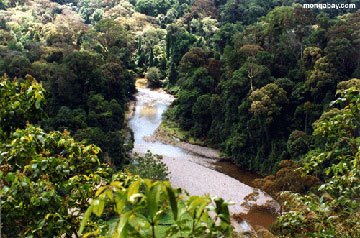Malaysia to use certification to crack down on illegal logging
Malaysia to use certification to crack down on illegal logging
mongabay.com
March 27, 2007
Malaysia will ask its timber suppliers in other countries to provide certification on the origin of wood according to a report from the International Tropical Timber Organization (ITTO). The move will help Malaysia fight allegations that its timber processors are complicit in the illegal logging industry.
The ITTO says the decision will boost sales of Malaysian secondary processed wood products to markets where timber accountability is important, like Europe and increasingly, the United States.
Malaysian Minister of Plantation Industries and Commodities, Datuk Peter Chin, said that certification will “ensure that Malaysia was not accidentally purchasing smuggled or illegally-logged timber.” He added that under the Voluntary Partnership Agreement (VPA), currently being negotiated between the European Union (EU) and Malaysia, “European countries should make sure that they purchased timber and timber-based products from countries that practiced sustainable forest management.” Further, he said, European countries should be willing to pay more for certified timber since production costs would be higher for manufacturers.

Rainforest in Malaysia |
Green groups have long accused Malaysian timber firms of participating in illegal logging operations in other countries as well as smuggling illicitly harvest timber, especially from Indonesia. In recent years the country has taken steps to tackle this problem on a domestic level, toughening prison sentences for illegal loggers and developing a remote sensing technology to detect illegal logging and forest fires. Still Malaysia’s annual deforestation rate accelerated by 86 percent between the close of 1990s and the 2000-2005 period. The country lost an average of 140,200 hectares — 0.65 percent of its forest area — per year since 2000 according to official figures. Forest cover has fallen dramatically in Malaysia since the 1970s. While the United Nations says that forests still cover more than 60% of the country, less than 12 percent of these forests are considered pristine.
This article used information from an ITTO bulletin







